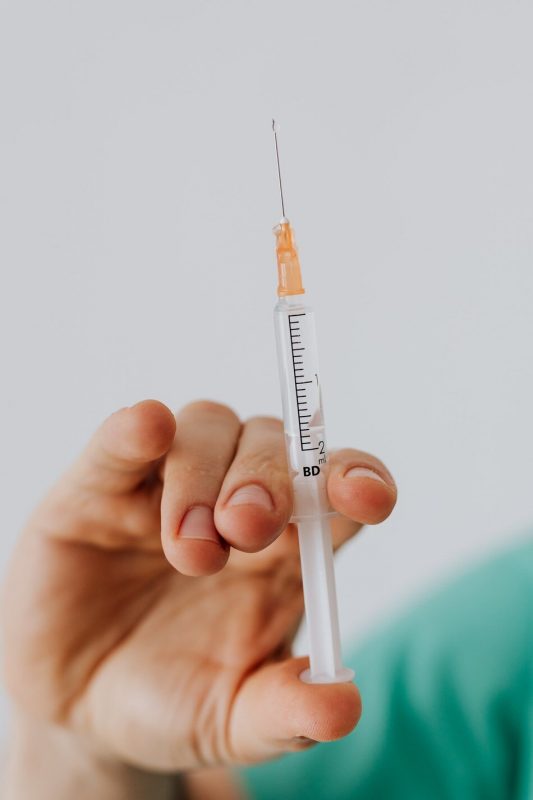December 28, 2020
Pulmonary Fibrosis Foundation (PFF) is encouraging COVID-19 vaccination for individuals with pulmonary fibrosis, a progressive and debilitating lung disease affecting more than 200,000 Americans.
In a letter to the PF community, the PFF Medical & Scientific Advisory Board strongly recommends vaccination, along with the safe practices of physical distancing, hand washing, and face coverings, to help prevent COVID-19 illness.
The following letter is posted on the PFF website:
To members of the Pulmonary Fibrosis Community,
SARS-Co-V-2, the virus that causes COVID-19, has impacted the lives of almost everyone across the globe in one way or another. It is estimated that over 77 million people across the world have been infected with SARS-Co-V-2, with over 18 million cases in the United States. The catastrophic impact is evident with more than 300,000 deaths in the United States from COVID-19, disproportionately affecting those with underlying medical respiratory conditions such as pulmonary fibrosis, as well as older Americans.
The essential tenets of prevention have been emphasized and are available on the PFF COVID-19 Resources page. They include physical distancing, appropriate hygiene with hand washing, and face covering to limit the spread of the disease and prevent infection. These measures are clearly effective in limiting the spread of COVID-19, as the virus is spread via respiratory aerosols, which can be easily inhaled or ingested in the absence of safe practices.
To complement these safe practices, two vaccines have been approved for Emergency Use Authorization by the FDA and other regulatory agencies across the world.1,2 Achieving this in under one year was an extraordinary effort that built on groundbreaking scientific work over the prior ten years and the efficient and rigorous conduct of clinical trials, in which these vaccines were demonstrated to be safe and over 94% effective in preventing COVID-19 illness.3 Combined with safe practices, vaccination with either of these vaccines will provide a pathway for a safe return to a more normal life over the coming months.
In accordance with Recommendations issued by the Centers for Disease Control and Prevention,4 the Pulmonary Fibrosis Foundation strongly encourages vaccination for COVID-19, as the benefits far outweigh the risks. The two authorized vaccines have been demonstrated to be safe and extremely effective in preventing COVID-19 and/or limiting the development of severe COVID-19.
Following vaccination, individuals should continue to adhere to safe practices, including the use of face coverings, hand washing, and physical distancing until the prevalence of the SARS-CoV-2 virus in the community is significantly reduced. To find regional information regarding access to the vaccinations, and to ensure that you are not part of the limited population for whom vaccination is not recommended at this time, we encourage you to reach out to your primary care physician and pulmonologist, as distribution is being coordinated via local and state departments of health.
As new information is available, we will update the COVID-19 Resources and encourage you to revisit the site regularly. Patients, relatives, advocacy experts, industry, physicians, researchers, and federal agencies contributed to the tremendous successes in development of the two available vaccines. The entire PF community, as well as all Americans, should avail themselves of the protection afforded by vaccination, so we can resume our work as we imagine a world without PF.
On behalf of the Pulmonary Fibrosis Foundation Medical & Scientific Advisory Board,
William T. Schmidt
PFF President and CEO
Gregory P. Cosgrove, MD
Chief Medical Officer
Andrew Limper, MD
Chair, Medical Advisory Board
Joseph Lasky, MD
Chair, Scientific Advisory Board
Kevin R. Flaherty, MD, MS
Chair, PFF Registry and CCN Steering Committee
